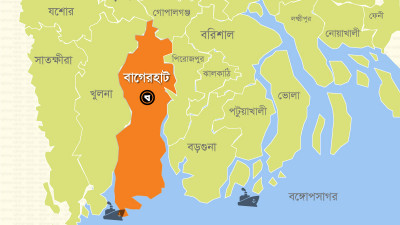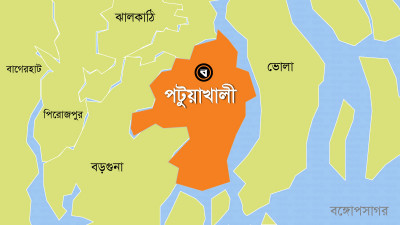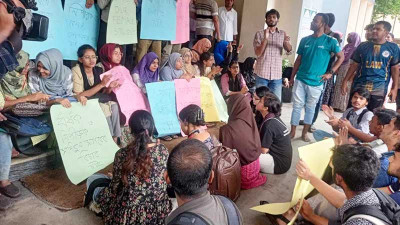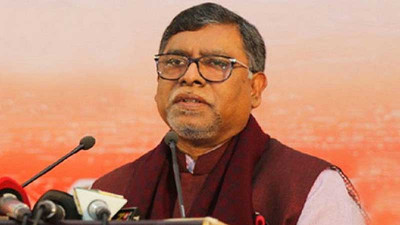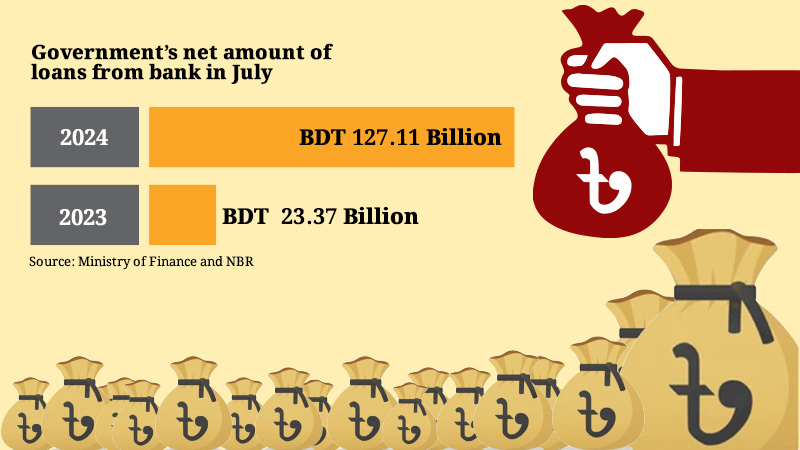 Photo: Bonik Barta
Photo: Bonik Barta In
July, the first month of the current fiscal year (2024-25), the entire country
was shaken by student and public protests. The economy and business sector
nearly came to a halt due to these protests and the government’s internet
shutdown. In this situation, the government had to rely on bank loans to cover
operational expenses. According to data from Bangladesh Bank, the government
borrowed a net amount of BDT 127.11 billion from the banking system in July.
Sources indicate that this loan was primarily used to pay government employees’
salaries and loan interests.
In
comparison, the government’s net loan from banks in July last year was BDT
23.37 billion. This year, the loan amount is more than five times higher than
the same period last year. Economists are highlighting that July, being the
first month of the fiscal year, usually does not carry a significant
expenditure burden for the government. Therefore, the sharp increase in
borrowing from banks during this period is considered abnormal.
The
government has set an ambitious target to collect BDT 4.8 trillion in revenue
through the National Board of Revenue (NBR) for this fiscal year. This requires
an average monthly collection of BDT 400 billion. However, according to NBR
data, only BDT 205.61 billion in revenue was collected in July, compared to BDT
206.01 billion collected during the same period last year. In August, the NBR
collected BDT 235.13 billion in revenue.
Analysts
note that government spending is continually rising, but the revenue collection
is not meeting the desired level, leaving a significant deficit between income
and expenditure. To cover this gap, the previous government relied heavily on
loans. The interim government is now bearing the burden of this dependency.
During the protests in July, the economy and business activities came to a
standstill, preventing the government from reaching its revenue targets.
Consequently, the government had to turn to bank loans to keep functioning.
When
asked about the situation, Dr. Mustafa K Mujeri, Executive Director of InM,
told Bonik Barta, “A large portion of July was marked by protests, conflicts,
and unrest, which disrupted economic activities. The government couldn’t meet
its expected revenue targets and had to rely on bank loans to operate. Since
the interim government took over, economic activities have not fully stabilized
yet. The government is currently in a reformation phase, and we hope to see
gradual improvement.”
Dr.
Mujeri, the former chief economist of Bangladesh Bank, also added, “Since the
interim government assumed power, there have been new promises of loan
assistance from development partners like the World Bank, IMF, and ADB. Once
these loans are integrated into the economy, the government’s reliance on bank
loans should reduce significantly. The new governor of Bangladesh Bank has also
stated that he will discuss with the government ways to limit their borrowing
by BDT 500 billion below the announced target. If the government borrows less,
the private sector will have the opportunity to take more loans, which could
help rejuvenate the economy.”
Statistics
from the Ministry of Finance show that the size of the government’s operational
expenses has been increasing every year. A significant portion of these
expenses goes toward paying government employees’ salaries and interest on
loans. In the 2023-24 fiscal year, the target for operating expenses was set at
BDT 4.75 trillion. However, the actual expenditure in this sector amounted to
BDT 4.05 trillion, or 85 percent of the target. Of this, BDT 852.42 billion was
spent on employee salaries and allowances, and BDT 1.14 trillion was used for
interest payments. The government’s development expenditure target for the
2023-24 fiscal year was BDT 2.77 trillion, but actual spending amounted to BDT
2.01 trillion. Overall, the total expenditure against the BDT 7.53 trillion
target was BDT 6.07 trillion, or 80.62 percent of the target.
For
the 2024-25 fiscal year, the government has set a target of BDT 5.07 trillion
in operational expenses, with BDT 1.13 trillion earmarked for interest payments
alone. The Ministry of Finance has yet to release details on the government’s
operational expenses for July, the first month of the fiscal year. However, in
July of the last fiscal year of 2023-24, BDT 209.88 billion was spent on
operating expenses. In the two preceding fiscal years, July saw operating
expenditures slightly exceeding BDT 190 billion. According to a source in the
Ministry of Finance, government operating expenses for July this year could
reach approximately BDT 250 billion. In July of the current fiscal year, BDT
29.22 billion was spent on the Annual Development Program (ADP), and including
related expenditures, total government expenses for operating and development
sectors could reach around BDT 300 billion.
Due
to higher spending than income, the government faces a deficit every year. In
the recently concluded 2023-24 fiscal year, the government’s budget deficit was
BDT 1.88 trillion. To cover this shortfall, the government borrowed BDT 711.57
billion from foreign sources and BDT 1.24 trillion from the banking sector.
Since the fall of the Awami League government and the current interim
government’s assumption of power, the issue of reducing government expenditure
has been a frequent topic of discussion. Some economists have advised the
government to reduce spending by at least BDT 1 trillion. Additionally, the
International Monetary Fund (IMF) is also pressuring the government to cut
expenses and increase revenue. The Ministry of Finance and the Ministry of
Planning are currently working on reducing operating expenditures by BDT 280
billion and development expenditures by BDT 300 billion. Altogether, the
government’s total expenditure could decrease by around BDT 580 billion, though
the actual figure may vary. Last fiscal year, the government reduced
expenditures by BDT 473.67 billion through a revised budget. Currently, the
interest rate on treasury bills has risen to 13 percent. Experts believe that
unless initiatives are taken to reduce borrowing through expenditure cuts, it
will be difficult to rein in government spending.
Economic
analysts argue that the previous government often neglected or concealed
various macroeconomic crises in the country. As a result, accurate reflections
of the country’s economic condition were not seen in policy decisions, which
exacerbated the economic crisis.
According
to economist Dr. Selim Raihan, “For the past few years, Bangladesh’s economy
has been facing several crises. High inflation, dollar and reserve shortages,
exchange rate instability, large deficits in revenue and the budget, and the
rising trend of non-performing loans (NPLs) have all put the economy in
distress. The former government did not take these issues seriously, and we are
now witnessing the dire consequences. As the revenue collection has not met its
targets, the government had become fully reliant on loans. These crises have
now fallen on the shoulders of the interim government.”
Dr.
Raihan, the executive director of the research organization SANEM, added, “The
country’s law and order situation is still not fully stable. There is unrest in
various sectors, including the ready-made garment sector and in the Chattogram
Hill Tracts. To bring the economy back to stability and growth, the first
priority must be national stability. The budget which was proposed by the
Sheikh Hasina government for the current fiscal year is unrealistic and requires
a practical revision. At this moment, priority sectors need to be identified
and given focus.”

